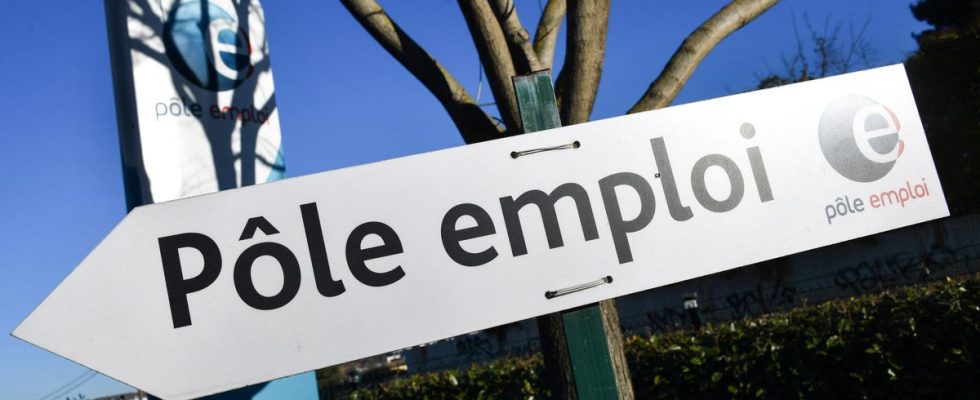The government absolutely wants to turn the page on pensions, the black spot of the five-year term. To this end, he is presenting his bill “for full employment” on Wednesday. The latter gave birth to France Travail, the successor to Pôle emploi, and set up more personalized and directive support for RSA recipients who have hardly benefited from the drop in unemployment.
The executive is counting on this transformation to achieve full employment, i.e. an unemployment rate of around 5% in 2027 (against 7.1% currently) by targeting people who are far from employment. Despite the sharp drop in unemployment in recent years and labor shortages in many sectors, the number of RSA beneficiaries has hardly decreased since 2017, at around 1.8 million.
Standardize structures
In this context, the creation of France Travail, by 1 January 2025 at the latest, aims to better coordinate the actors of the public employment service, which is more fragmented than in other European countries. It is a question of having the same entry procedure for all people looking for work or encountering integration difficulties, regardless of the door they knock on.
The idea is that a person applying for RSA at the CAF finds himself at the same time registered with France Travail, whereas today only 40% of RSA beneficiaries are at Pôle emploi. The public operator and all the players (local missions for young people, Cap emploi for people with disabilities, but also local authorities, etc.) will have to work better in a network with connected systems.
“Collective play”
Pôle emploi will call itself France Travail and will be the chief operator of this network. “It is not a question of making an institutional big bang but of playing collectively”, summed up Elisabeth Borne, while some elected officials denounce, like Regions of France, “a recentralizing project”. This automatic registration with France Travail, on the basis of common criteria, will allow “rapid entry into the support course” and “visibility of all people looking for work in a territory”, underlines we at Matignon.
Each member of France Travail will sign “a contract of engagement”. It is in this context that renewed support for RSA recipients is being tested in 18 departments with the sensitive issue of 15 to 20 hours of work per week. Not formally enshrined in law, these hours (immersions, refresher courses, CV writing, etc.) will be an “adapted” objective for everyone, said Olivier Dussopt. It will be “neither free work nor compulsory volunteering”, he repeated in the face of the fears of associations fighting against poverty.
“Stigmatize” the beneficiaries of the RSA
For the Minister of Labour, “what fails is the support. 350,000 recipients have no follow-up and we are not left with our duty of solidarity with 607 euros”. In a survey published at the start of the year, 61% of RSA beneficiaries said they had a “need for help in professional or social matters” which was not met. In this “logic of rights and duties”, the bill makes it easier to implement sanctions for recipients who do not respect their obligations.
Before the ax of a radiation, the adviser will now be able, unless opposed by the president of the departmental council, to suspend the payment of the RSA in the event of breach, with a retroactive regularization when the person respects his commitments again. The government wants to “subject RSA recipients to the same control as the unemployed”, “it deeply stigmatizes them”, denounced Sophie Binet (CGT) while for Marylise Léon (CFDT), the conditionality of the RSA “is a red line” .

